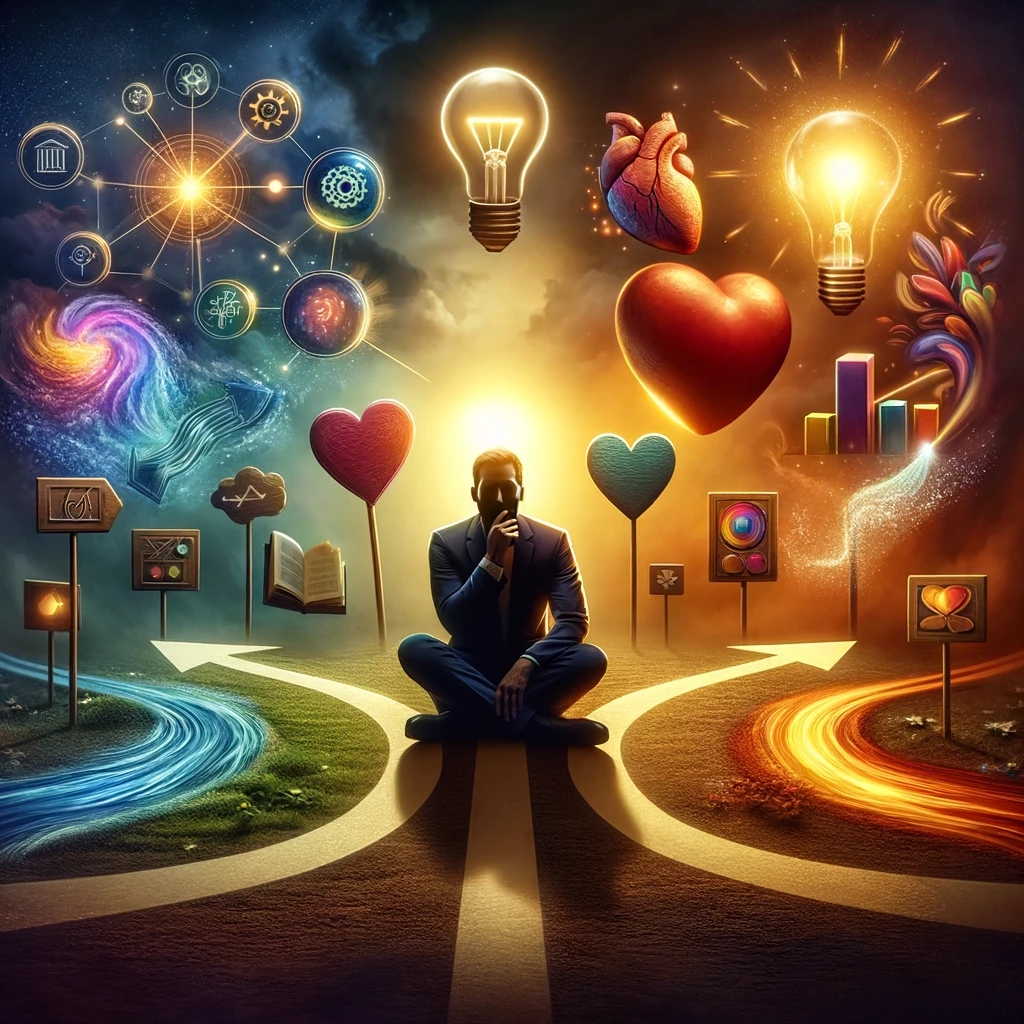It’s a familiar scene in movies: The hero has to make a big decision, so they sit down, list the pros and cons, and try to think their way to the right choice. Meanwhile, their friend says, “Just follow your heart.” And we’ve been taught to see this as bad advice. But what if it’s not?
Recent studies are shaking up old beliefs. They show us that our emotions are not just random feelings. They are crucial to making wise decisions. Let’s dive deeper into why these matters.
When you’re faced with a decision, your brain does something unique. It doesn’t just look at the facts. It also checks in with how you feel about those facts. This process happens in areas of the brain where emotions and logic are neighbours. They talk to each other, blending cold, hard facts with your feelings. This mix helps you make choices that are not just smart but right for you.
Imagine you get a job offer with a higher salary in a city you don’t like. Your logical side starts listing the benefits: more money, career growth, etc. But your gut feels heavy. You’re sad thinking about leaving your current city. That sadness is not just a random feeling. It’s your brain saying, “This fact matters to me.” Ignoring it could lead to a decision that looks good on paper but feels wrong in life.
Researchers from Stanford have found that when people consider decisions, the brain areas responsible for logic and emotion light up. They also found a special kind of brain cell that helps bridge the gap between feeling and fact. These cells help the brain weigh logic and emotion to make the best decision.
First, understand that your feelings are valuable data. They tell you what’s important to you, what you value, and what you might regret. Second, don’t rush to push aside your emotions when making decisions. Let them speak. They might be pointing out something your logical brain missed.
Being in touch with your emotions doesn’t make you less rational. It makes you more intelligently responsive to what’s at stake. So next time you’re at a crossroads, don’t just tally up the pros and cons. Check-in to see how each option makes you feel. You might find that your emotions lead you to the most logical choice.
Read about the study


Leave a comment